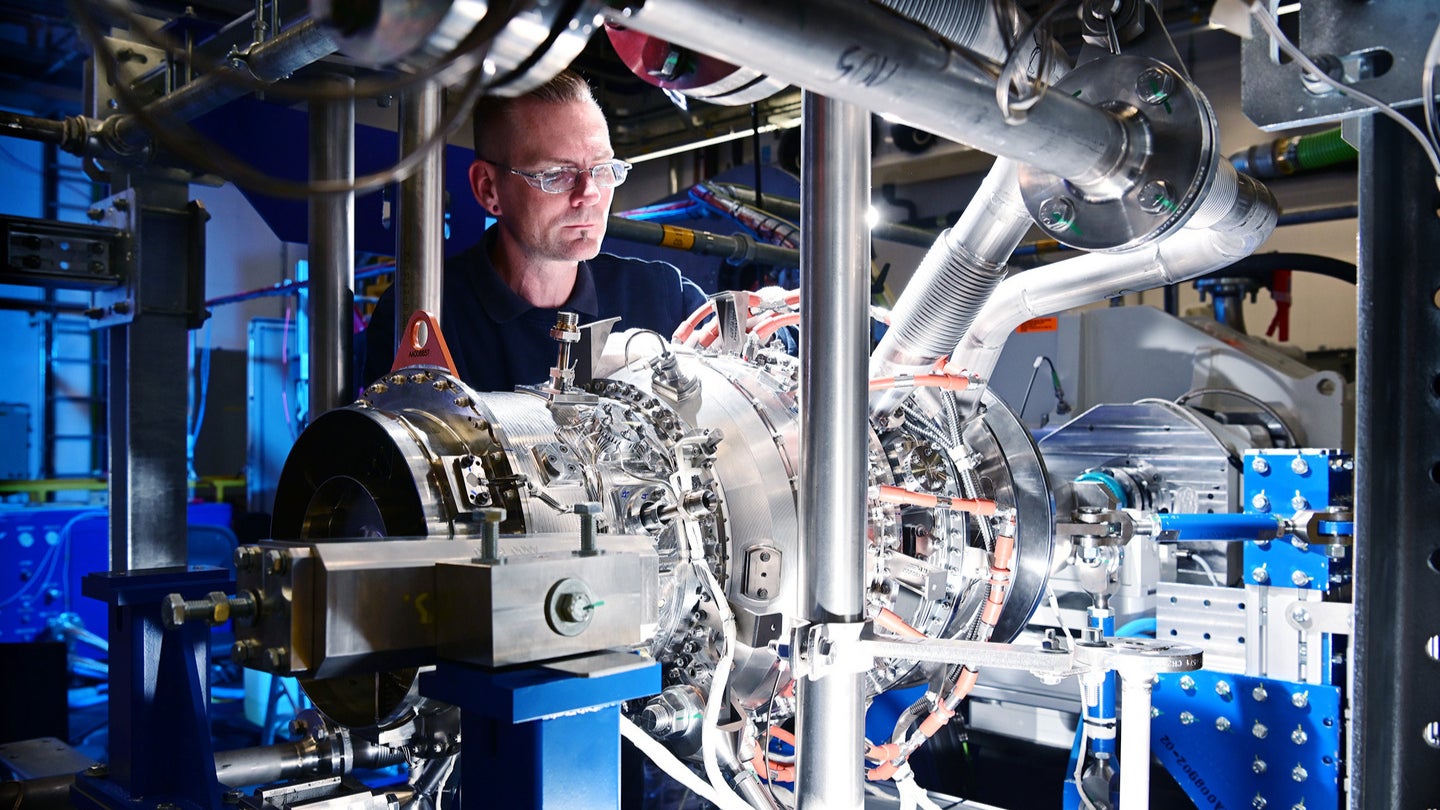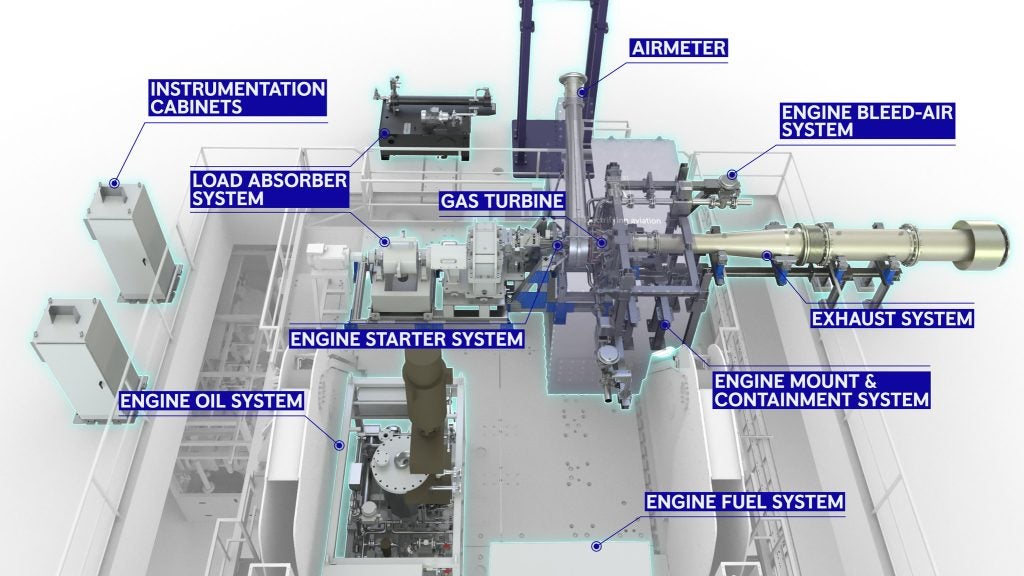
A new kind of small gas turbine designed to power hybrid-electric flight, developed by Rolls-Royce, has taken another testing step by completing its first fuel burn.
The turbine will be integrated into the company’s complete lightweight turbogenerator system, which is currently being designed with the Advanced Air Mobility market in mind to provide a low-emissions solution.

Discover B2B Marketing That Performs
Combine business intelligence and editorial excellence to reach engaged professionals across 36 leading media platforms.
Matheu Parr, customer director of electrical at Rolls-Royce, said: “The first fuel burn of our brand-new small gas turbine is a significant leap forward, with successful stages throughout the test from light-up to the pull-away of the system.
“This significant achievement follows the fast-paced development time of the new gas turbine from concept freeze to ‘pass to test’ in under two years. The turbogenerator system will enable our customers to extend the routes that electric flights can support.”
When it becomes available, the system, which can be used in serial or parallel hybrid applications, will be able to offer scalable systems between 500kW and 1,200kW to smaller commuter aircraft, such as electric vertical take-off and landing (eVTOL) vehicles and electric short take-off and landing (eSTOL) aircraft.

It is part of Rolls-Royce’s wider electrical propulsion portfolio as the manufacturer looks to capitalise on the aviation industry’s push towards more sustainable technology to reach net zero targets by 2050.

US Tariffs are shifting - will you react or anticipate?
Don’t let policy changes catch you off guard. Stay proactive with real-time data and expert analysis.
By GlobalDataThe test facilities and equipment, made up of 14 subsystems, for the development of the turbine, have been designed and built in just under a year and have now generated significant data that will be adapted into the design of the turbine for the next set of tests.
Development of the engine comes at a time of rapid expansion for the urban and advanced air mobility industries, with two of the biggest eVTOL companies, Joby and Eve, both announcing plans for the construction of factories to produce their vehicles.
Rolls-Royce has also recently marked a testing milestone for another of its sustainable energy projects with a successful test of hydrogen fuel in take-off conditions in one of its engines.





